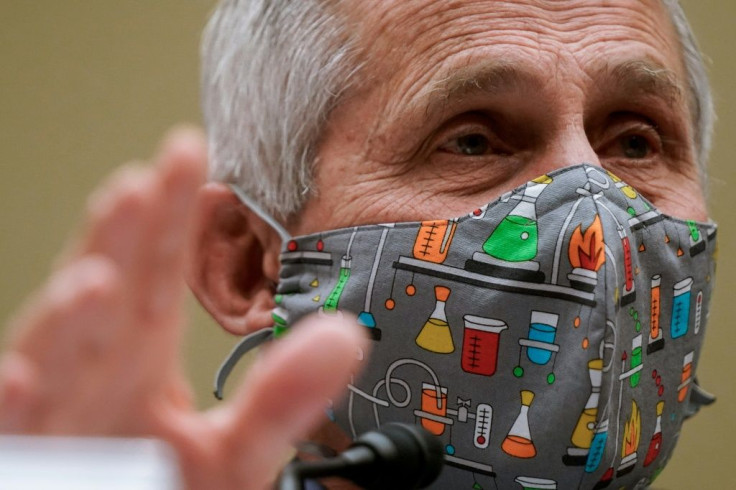Delta COVID-19 Variant 'Worst' Strain Yet, Could Potentially Evade Vaccines
KEY POINTS
- The Delta variant could spread rapidly across the US, warns Fauci
- The B.1.617.2 variant could potentially evade protection offered by COVID-19 vaccines
- Researchers found that antibody levels in older people decreased over time
White House infectious disease expert Dr. Anthony Fauci has urged Americans to get vaccinated against COVID-19 to prevent the new variant, known as Delta or B.1.617, from spreading across the United States. Some Experts have labeled the variant the “worst we’ve seen so far.”
During a Tuesday briefing of the administration’s pandemic response team, Fauci, the director of the National Institute of Allergy and Infectious Diseases (NIAID), warned that the recent coronavirus outbreak in the United Kingdom, which imperiled its plans to fully reopen on June 21, could happen in the United States.
He said that the Delta variant accounts for an estimated 60% of new cases in the U.K. and is now more prevalent than the Alpha strain, earlier called the B.1.1.7 strain, which was first identified in that country.
“In the U.K., the Delta variant is rapidly emerging as the dominant variant ... It is replacing the B.1.1.7,” Fauci said, adding: “We cannot let that happen in the United States.”
The B.1.617.2 Delta variant, first detected in India, accounts for only 6% of cases in the country, genomic sequencing studies show. But Fauci said the actual number could likely be higher.
The Delta variant could also be the “worst” COVID-19 strain detected so far, according to Dr. Eric Topol, founder of the Scripps Research Translational Institute.
The good news is that we have vaccines that can protect from all the variants that have emerged to date.
— Eric Topol (@EricTopol) June 6, 2021
The bad news Is delta, the worst we've seen so far.
With latest updates from @PHE_uk and @TheLancet pic.twitter.com/XnEaIojvn7
The White House briefing comes after researchers at the Francis Crick Institute and the University College London Hospitals Biomedical Research Center found that COVID-19 shots from Pfizer/BioNTech elicited lower levels of antibodies against the Delta variant in older people. The research also noted that the antibodies declined over time.
“Our results suggest that the best way to do this is to quickly deliver second doses and provide boosters to those whose immunity may not be high enough against these new variants,” Emma Wall, an infectious diseases consultant at UCLH, told Financial Times.
Eleanor Riley, professor of immunology and infectious disease at the University of Edinburgh, said that while data suggested that the COVID-19 vaccines may provide less protection against Delta variant, the antibody response is not the only factor that determines the efficacy rate of the shots.
“These data cannot tell us whether the vaccine will be any less effective at preventing severe disease, hospitalization, and death; we need to wait for the actual data on these outcomes,” she said, adding: “There are reasons to be optimistic on this score, as other immune responses — such as T cells — also contribute to protection against severe disease and these may be less affected by the mutations that affect antibody neutralization.”

© Copyright IBTimes 2024. All rights reserved.






















